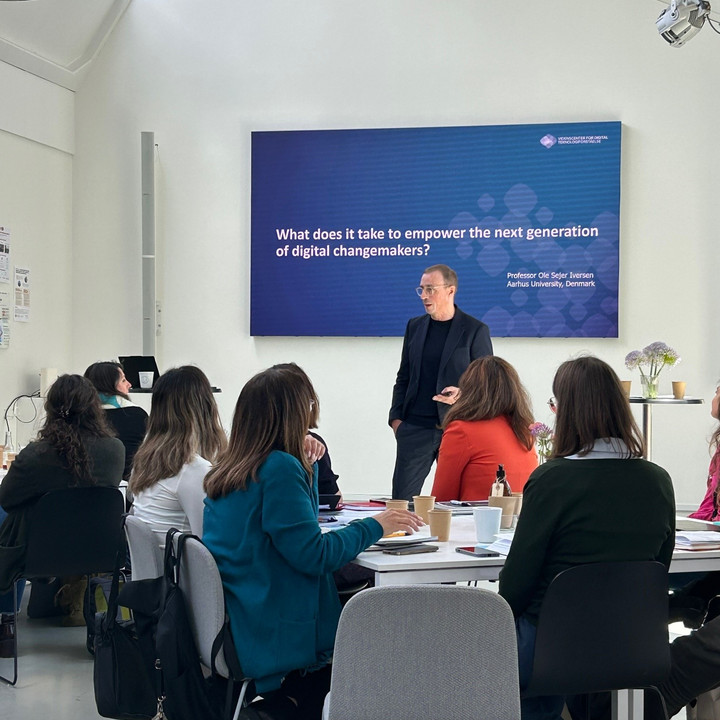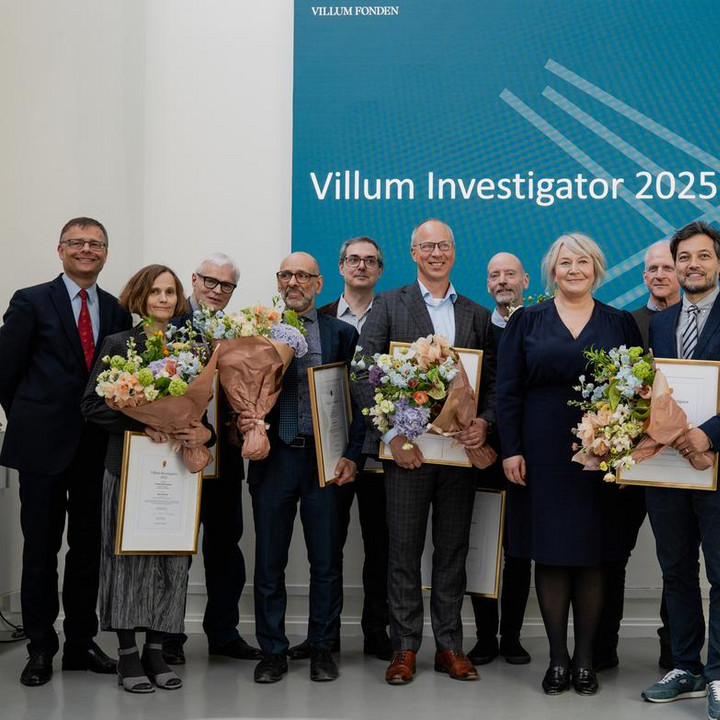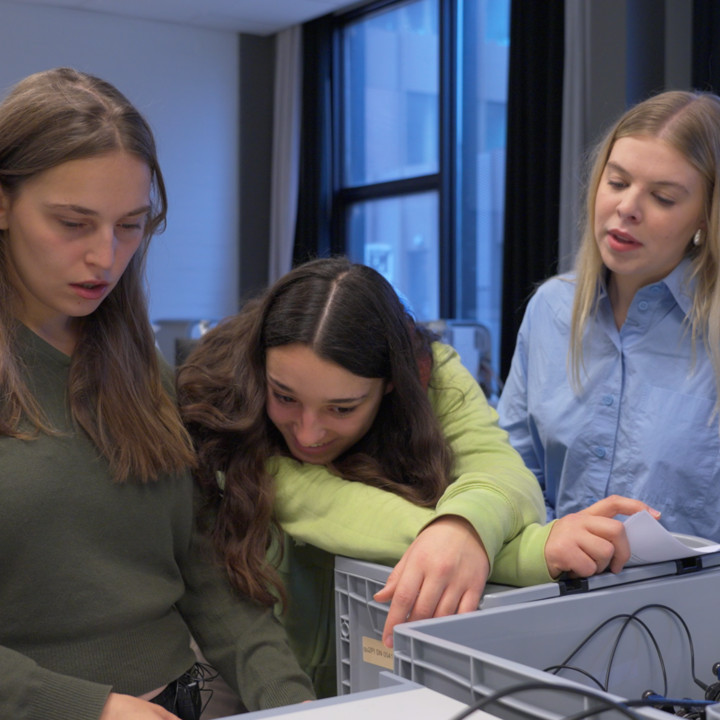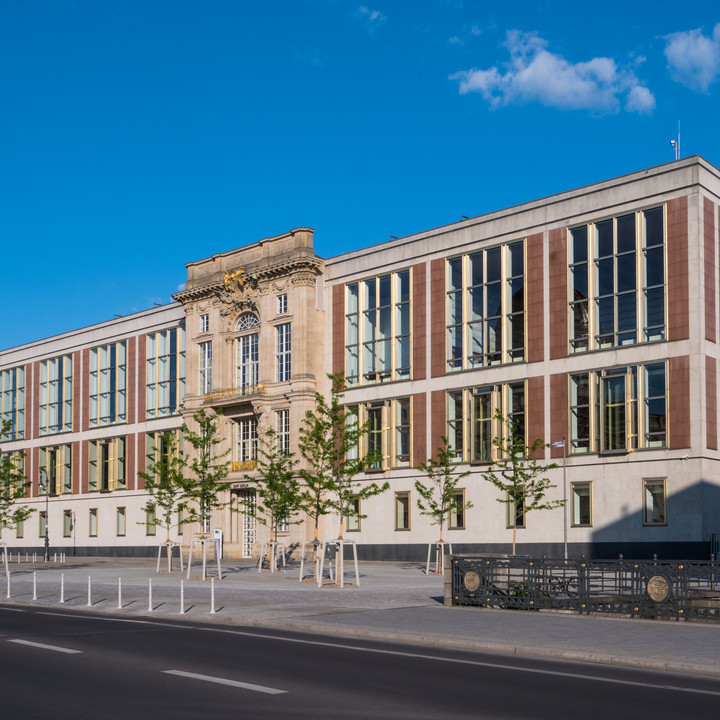47 Million DKK Awarded for Interdisciplinary Research

Although major challenges often require collaboration across disciplines, researchers rarely venture beyond their own fields. However, this is precisely what Villum Foundation’s Synergy programme aims to encourage.
The goal of Villum Synergy is to strengthen the research opportunities that lie at the interface between computer science and other fields. This can include engineering, natural sciences, but also the humanities or social sciences.
This year, Villum Foundation has chosen to grant funding to 10 research projects under the Villum Synergy programme. One project will receive 12 million DKK, and 9 will receive 4 million DKK each.
“Digitalization, artificial intelligence, and big data call for interdisciplinary collaborations that combine expertise in computer science with other fields. With the Villum Synergy programme, interdisciplinary collaboration can lead to groundbreaking results,” says the Thomas Bjørnholm, Executive Chief Scientific Officer at Villum Foundation.
Villum Foundation has received a total of 61 applications for the programme, including 10 applications for large projects in established collaborations and 51 applications for initiation projects, primarily aimed at starting new collaborations.
Strategic Artificial Intelligence in Logistics: Enhancing Human-Machine Interactions for Port Digitalization: Associate Professor Niels van Berkel, Department of Computer Science, Aalborg University and Associate Professor Carolina van Noort, Department of Sustainability & Planning, Aalborg University, 3.99 million DKK.
Physics-Informed and Data-Driven Structural Health Assessment of Offshore Infrastructures: Associate Professor Martin Andersen, DTU Compute, Technical University of Denmark and Associate Professor Evangelos Katsanos, Department of Civil and Mechanical Engineering, Technical University of Denmark, 3,71 million DKK.
COEVOLVE: Developing new methods to bridge prehistoric archaeology and ancient DNA: Professor Mikkel H. Schierup, Department of Molecular Biology and Genetics, Aarhus University and Professor Felix Riede, Department of Archaeology and Heritage Studies, Aarhus University, 3,97 million DKK.
Making hybrid senses: assistive sensing technology for the visually impaired: Professor Barry Brown, Department of Computer Science (DIKU), University of Copenhagen and Associate Professor Brian Due, Department of Nordic Studies and Linguistics, University of Copenhagen, 3,94 million DKK.
Can Active Colloids Have Collective Behavior?: Associate Professor Christian Hirsch, Department of Mathematics, Aarhus University and Professor Birgitte Städler, Interdisciplinary Nanoscience Center, Aarhus University, 3,99 Million DKK.
Modeling hidden social bacterial dynamics between cooperators and cheaters towards co-existence or extinction: Professor Johnny Ottesen, Department of Science and Environment, Roskilde University and Associate Professor Fatima AlZahra’a Alatraktchi, Department of science and environment, Roskilde University, 3,99 Million DKK.
Decoding the coordination of biological networks (DECONET): Professor Aasa Feragen, DTU Compute, Technical University of Denmark and Associate Professor Pia Nyeng, Department of Science and Environment, Roskilde University, 3,99 Million DKK.
AInterviewer: a framework for using Generative AI to collect large-scale qualitative interview data: Associate Professor Anna Rogers, Institute for Computer Science, IT University of Copenhagen and Associate Professor Hjalmar Carlsen, Copenhagen Center for Social Data Science (SODAS), University of Copenhagen, 3,52 million DKK.
MathCrete; Convergence of data and material science: crafting carbon-negative cement: Senior Researcher Jakob Sauer Jørgensen, Institute for Computer Science, Technical University of Denmark and Senior Researcher Navid Ranjbar, Department of Mechanical Engineering, Technical University of Denmark, 4 million DKK.
Explainable Artificial Intelligence and Credibility in Asylum Decision-making (XAI-CRED): Professor Thomas B. Moeslund, The Technical Faculty of IT and Design, Aalborg University og Professor Thomas Gammeltoft-Hansen, Faculty of Law, University of Copenhagen, 11,99 million DKK.
- Villum Synergy aims to strengthen interdisciplinary, data-driven research and is intended for researchers from computer science, statistics, or applied mathematics in collaboration with researchers from a wide range of other disciplines.
- The program was established in 2019 to connect computer science with other disciplines and to strengthen excellent interdisciplinary research in Denmark.
- Permanent university researchers can apply for grants of 4 million DKK for initiation projects, primarily for starting new collaborations, or grants of 8-12 million DKK for well-established collaborations that can benefit from larger funding.
- Read more here
- The Villum Foundation supports technical and scientific research and education, as well as environmental, social, and cultural purposes both in Denmark and abroad.
- With annual grants of around 600 million DKK, the Villum Foundation is one of Denmark's largest contributors to technical and scientific research.
- The Villum Foundation was founded by engineer Villum Kann Rasmussen — the inventor of the VELUX window and founder of VKR Holding A/S.



